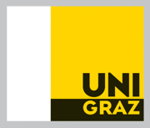Popular scientific publication of essential research results from completed dissertations.
First year of the project:
Improved public perception of HSC (humanities, social and cultural science and arts) and EEK (advancement and appreciation of the arts)
During the first year, the aim of the work package was to improve common awareness of research results in order to increase the value of the HSC/EEK in the public.
With the development of popular science formats, the first steps were achieved to make research results available to a large expert audience.
Through preparation of expert publications based on dissertations, it was intended on the one hand to make results available to a larger readership and on the other hand, to train authors in preparing publications and presentations for an audience outside of the scientific community. Postdoctoral researches created in the context of a WTZ funded appointment popular scientific presentations, articles and publications.
Two examples:
Christian Dayé: The Augur’s’ Hopes: Experts, Social Scientists, and the Craft of Prognosis in Cold War America
The Augurs’ Hopes explores the history of two prognostication techniques: Delphi and political gaming. Each relied on expert opinions to predict future events, particularly the moves of the closely guarded players in the Cold War and when they would reach new technological capacities. The two techniques were developed at the RAND Corporation, a California-based think tank with close links to the US Air Force. Marking the beginning of the “Future Studies” movement, the goal was to produce foreknow-ledge that would inform military and government decision-making at a time when uncertainty felt like an immediate threat to democracy and Americans’ way of life. Besides preparing the publication of his dissertation, Dayé is also developing a popular cultural lecture which summarizes the results and the conclusion of the thesis.
Agnes Grond: Literal worlds. Socialization processes in Kurdish migrant families. A case study
Migration is an increasing global phenomenon. Integrating immigrants and dealing with diversity have a high priority in host societies. In Austria, the issue of language is at the center of the integration policies and the public discourse. On one hand, the right of residence is linked to language skills; on the other, language skills are an important factor in the job market and in the school system. The dissertation provides a detailed history of an immigrant family’s language world and shows the impact factors that lead to the development of language skills. The thesis will be presented at the following conferences and meetings: lecture: “Education in Minority Languages. The case of Kurdish” at the “XV International Conference on Minority Languages” in Belgrade, 05/27-30/2015, and lecture: “Kurdish-German bilingual teaching. Opportunities and Barriers.” at the 18th Graz Conference “German as a Foreign and Second Language”, 6/5-6/2015.
Second year of the project:
The primary objective in the second project year was to decrease barriers between economy and humanities, social and cultural science and arts, making the expertise of HSC/EEK alumni visible and to establish a coordinated flow of information about professional needs from the economy to graduates of the humanities and social and cultural studies. For this purpose, already existing initiatives for the exploitation of HSC/EEK research results were evaluated in the second project year. Based on an analysis of requirements the University of Graz, University of Music and Performing Arts Graz, Alpen-Adria-Universität Klagenfurt designed and realized several initiatives.
Design and implementation of new exploitation initiatives
Initiative 1: “Wirtschaftsgeist-Blog”:
With the blog “Wirtschaftsgeist” (Economic Spirit – http://wirtschaftsgeist.com) the Knowledge Transfer Centre South has created a communication platform for scholars/scientists in the humanities, social and cultural sciences and arts, who are interested in economic issues and career prospects. The blog provides:
- information about current events and initiatives
- information about the expertise of graduates
- a flow of information between students of the humanities, social and cultural sciences on the one hand and economy on the other.
Initiative 2: “Wirtschaftsgeist-Workshop”:
The workshop “Wirtschaftsgeist” provides the opportunity to students, who are interested in economic issues and career prospects, to meet young entrepreneurs. Each start-up gets together with an interdisciplinary group of students in order to work on a real-life challenge defined by the start-up. Approaches from different disciplines are combined while working on a predefined challenge. An innovation coach supports the teams with valuable input and creativity methods, in order to optimize the results.
The workshop creates a win-win situation for all parties involved: while students gain insight into entrepreneurship, start-ups benefit from the students’ creative problem-solving abilities.
Support of events, which strengthen the exchange of knowledge between HSC/EEK and economy.
Additionally to the new Knowledge Transfer Centre South initiatives, we gave administrative support and carried out public relations work for internal and external events, which focuses on flow of information between HSC/EEK and economy (e.g. “Geisteswissen schafft Wirtschaft” at the University of Graz).
Third year of the project
Increasing the popularity of the “Wirtschaftsgeist-Blog”
In the third year, the popularity of the blog was increased with the intention to establish it in the target group of HSC/EEK students as an important medium in the field of knowledge transfer between HSC/EEK and economy. With the promotion through social media (several facebook sites of the WTZ and the University of Graz) as well as at various events and by linking the blog to internal and external websites the visitor statistics increased significantly.
Two Wirtschaftsgeist-Workshops were realized:
Retrospect: Wirtschaftsgeist Workshop 2.0, 2nd December 2016
Pickings: Wirtschaftsgeist-Workshop 3.0, 12th May 2017
Fourth and fifth year of the project
Carrying on the “Wirtschaftsgeist” initiatives
In the fourth and fifth year of the project, we carry on with the “Wirtschaftsgeist” initiatives, namely blog and workshops, in order to boost these inter-university formats and to further establish the collaboration between HSC/EEK and economy.
Blog as sustainable source of information and service medium:
The intention is to establish the blog as a sustainable source of information and service medium for students and companies / industry. Besides information about initiatives and events on the interface between economy and humanties, social and cultural sciences and arts, the blog provides on regular basis portraits of HSC/EEK graduates, who are acting successfully in the private sector of the economy. This should demonstrate perspectives for HSC/EEK students for their potential career path aside from academia.
The workshop as an interdisciplinary think tank:
In project year 4 the “Wirtschaftsgeist-Workshop” was carried out the fourth time in order to establish the contact between HSC/EEK students and young entrepreneurs. For the first time, the workshop had a clear thematic focus. To indicate the importance of social innovation we invited two startup companies, which are pioneers in the field of sustainable value creation.
Plans for the next “Wirtschaftsgeist-Workshop” are already underway and the workshop takes place on May 25, 2018, with the thematic focus: “re-innovate your business – company succession”.
Publication – „Karrierewege von GeisteswissenschafterInnen und Kunstabsolventen“ (Career paths of graduates from the humanities and arts) – Autumn 2018:
In project year 5 a publication based on the popular „Wirtschaftsgeist-Blog“ collection of portraits “Karrierewege von GeisteswissenschafterInnen / Karrierewege in der Kunst” is going to be realized as a brochure. Therein different careers of graduated from the humanities, social and cultural scientists and arts, who are acting successfully in the private sector, will be portrayed. The publication will show the versatile expertise of HSC/EEK graduates based on practical examples and illustrate their footprint in the economy.
„Harald-Kaufmann-Preis“ for HSC/EEK publications– Autumn 2018:
Additionally to the “Wirtschaftsgeist” initiatives, the „Harald-Kaufmann-Preis“ will be awarded in autumn 2018. Excellent research publications of HSC/EEK will be honored in four categories. With this award the awareness for HSC/EEK topics should be increased. Researchers of the University of Graz and the University of Music and Performance Arts Graz are invited to submit their publications. A jury, consisting of representatives of different WTZ-Süd partners, will select the winners. To straighten the knowledge transfer the award winning authors will be invited to present their publications to the public at selected events (e.g. “print of science”).
Details and submission deadline will be announced in January 2018.
Pictures: condesign/pixabay.com
Written by: University of Graz, TK
on: 26/05/2015


